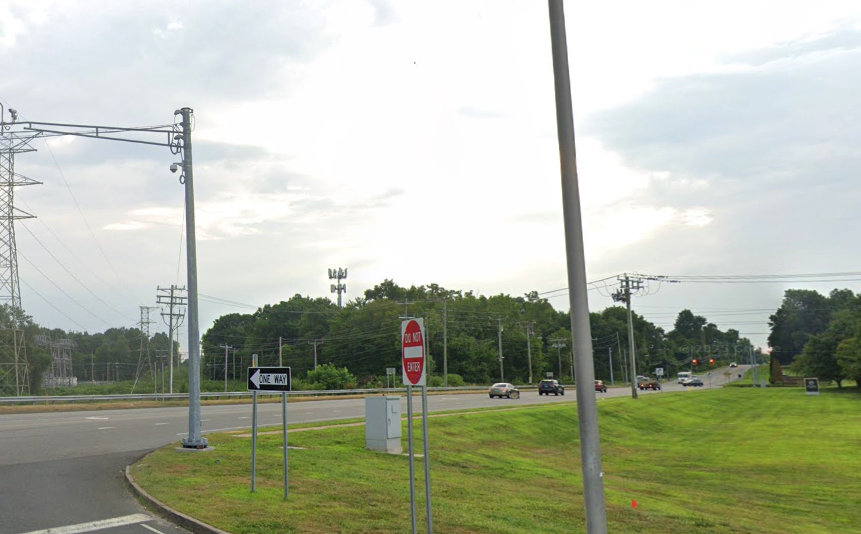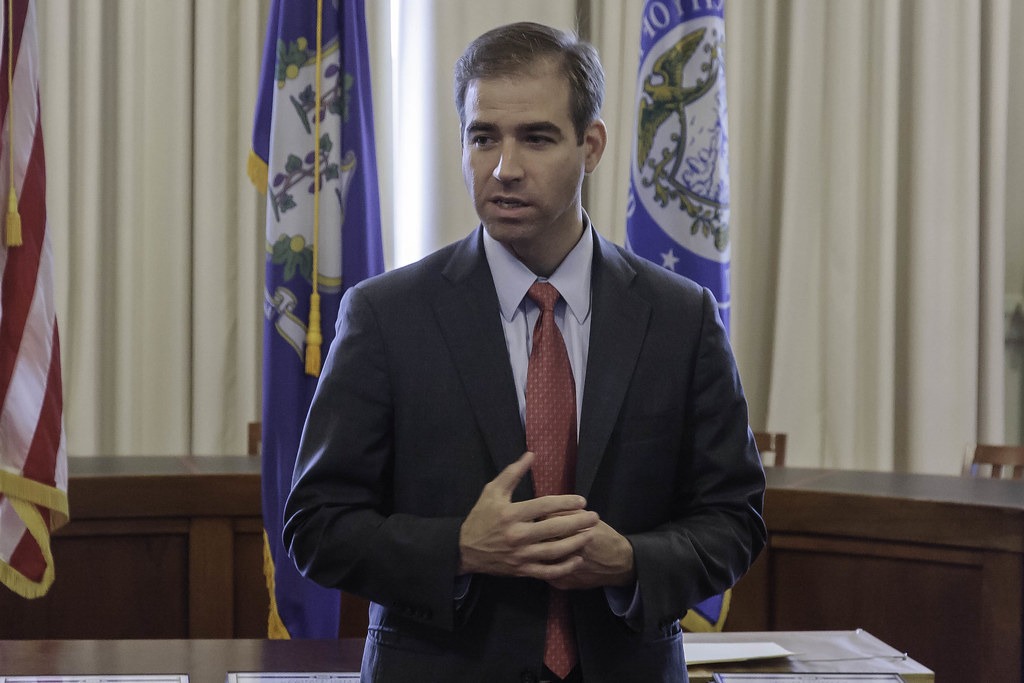Opinion Piece: this article reflects the opinion of the author and not necessarily that of the Democratic Town Committee.
I grew up in Rocky Hill, and while I’ve watched friends and former classmates head off to what they imagine as greener pastures in Boston, New York, or even all the way to the West Coast, I’ve been proud to call this town home for nearly twenty-six years. I’m a Rocky Hill Eagle Scout, I serve on our town’s Sustainability Task Force, and this past November I had the honor of being elected to local office. My roots here run deep and district-wide, shaping how seriously I take the question of who should represent us in Congress.
For many folks in my generation, politics can feel like a choice between stale promises and reckless experiments, if it feels like a choice at all. We’re handed a paradox: told to pick either experience or energy, either someone who knows how government works in theory or someone who actually wants it to work in practice. Luke Bronin cuts through that paradox. A dad, veteran, and former mayor of Hartford — now running for Congress in Connecticut’s 1st District — Bronin brings both real governing chops and a sense of urgency that meets the current political moment.
When Bronin took office as mayor in 2016, Hartford was teetering on the edge of bankruptcy. Past administrations had kicked the can down the road, piling up debt and leaving the city with one of the most precarious balance sheets in the country. Bronin did not sugarcoat the crisis, nor did he walk away from it. Instead, he led negotiations that helped retire more than half a billion dollars of city debt, stabilized finances, and put Hartford on a path where investing in schools, housing, and neighborhoods became possible again.
That willingness to walk straight into the storm rather than duck is the throughline of Bronin’s career. He guided Hartford through the pandemic, keeping city services running while deploying relief dollars into housing, youth jobs, and public health. Among many other community-centered initiatives, he launched the Hartford Youth Service Corps in 2016 to pay young people for community work and provide a ladder to opportunity. Hence, it’s not an exaggeration to say that Luke Bronin is a man who has experienced all kinds of weather and is still not afraid of storms, as the famous historian and political scientist Clinton Rossiter wrote of the Framers. Indeed, Bronin has governed in real time, under real pressure, with real consequences for working families.
However, this portrait would not be complete without looking beyond the capital, for Bronin is, above all, a public servant with an invaluable outlook on the nation. Before becoming mayor, Luke served in the Obama Treasury Department, where he helped create the Consumer Financial Protection Bureau to protect Americans from predatory lending and financial abuse. He later became Deputy Assistant Secretary for Terrorist Financing and Financial Crimes — the kind of role where you see exactly how corruption and financial games at the top (e.g., President Trump’s current “pay-to-play” administration) can hollow out trust in democratic institutions. Back home in Connecticut, as Governor Dannel Malloy’s general counsel, he worked on some of the most challenging statewide issues we’ve faced: common-sense gun safety laws, clean energy initiatives, and the push to end chronic homelessness among veterans.
So when Luke talks about tax policy and economic fairness, it’s not from a think-tank PowerPoint. It comes from years of experience combined with sharp political instincts. His recently unveiled proposal on taxation is simple and compelling: the code is broken and unfair, tilted toward billionaires and special interests, while working- and middle-class families get squeezed.
Bronin’s ideas on tax fairness, I think, instantiate his approach to governance. Although tax policy is far from a flashy left-versus-right culture-war agenda item, it is, in many ways, the most pragmatic and direct path to steering wealth back toward middle- and working-class Americans while chipping away at the multigenerational debt that burdens so many households. Bronin has issued a clarion call for a tax code that is fair and fiscally sustainable, one that fully funds essential public goods — from Social Security to healthcare, housing, and infrastructure development — by asking those who earn the most to pay their fair share.
If anyone understands how tax policy affects municipalities, it’s a former mayor of Hartford. During Bronin’s years as mayor, he was outspoken about the absurd reality that more than half of Hartford’s property is tax-exempt, leaving a smaller base to carry an enormous mill rate that punishes small businesses and homeowners. That experience gives him a uniquely granular understanding of what property taxes, state aid formulas, and federal policy really mean for cities and towns across our district.
In other words, one can be sure that Bronin’s calls for tax reform are more than sloganeering. It is a sensible and urgent policy change informed by first-hand experience with bad tax structures that choke off opportunity at the neighborhood level. Add to that his service as a U.S. Navy intelligence officer deployed to Afghanistan on an anti-corruption task force, and you get the picture: a leader shaped by encounters with hard places and hard problems. Luke has seen what happens when the rule of the well-connected replaces the rule of law, and he’s carried that lesson into his commitment to protecting democracy, defending the Constitution, and keeping government worthy of people’s trust.
As a young Democrat, I do not want to support someone merely because they vote “the right way” on a checklist of issues. I want someone who has already done the unglamorous work of governing — balancing budgets, saying no when it’s easier to say yes, and still finding the courage to invest in people and in community. Luke Bronin is that kind of leader: talented and tested, progressive and pragmatic, a man who has experienced all kinds of weather and is still not afraid of storms.
That’s why I’m supporting him, and why you should too.


